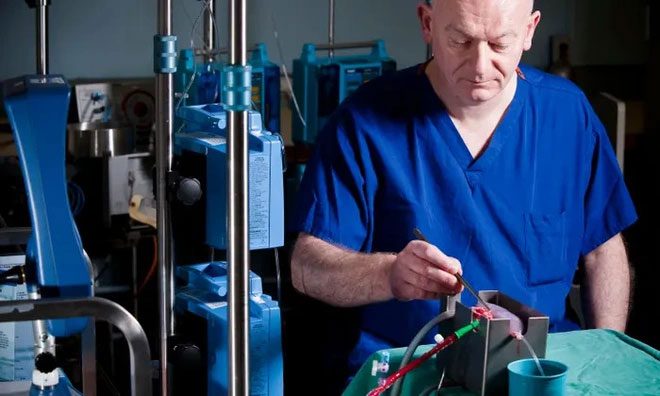Researchers have successfully changed the blood type of three donated kidneys, providing a greater opportunity for patients who have been unable to find compatible organ donors.
Scientists report that this new breakthrough could increase the supply of kidneys for transplantation, which is particularly important for individuals who have a low chance of finding a suitable match, according to a Guardian report dated August 15.
A kidney from a person with blood type A cannot be transplanted into someone with blood type B, and vice versa.
However, changing these blood types to O will allow for more transplant procedures, as this is the “universal” blood type that can be compatible with many individuals.
To achieve this, researchers at the University of Cambridge applied a normothermic perfusion machine to infuse an enzyme into the kidneys of the donor. This device connects to the human kidney to pump oxygen-rich blood through the organ, improving the preservation of the donor kidney and enhancing the chances of successful transplantation.
The enzyme removes specific molecules associated with blood types found on the blood vessels of the kidney. This effectively converts the organ to blood type O.

Mike Nicholson, a professor of transplant surgery at the University of Cambridge, is researching this method. (Photo: Kidney Research UK).
“We applied the enzyme to a portion of human kidney tissue and quickly observed that the antigens had been removed,” said Serena MacMillan, a researcher at the University of Cambridge.
“After that, we realized that this process was feasible, and we just needed to scale up the project to apply the enzyme to a full-sized human kidney,” she added.
“By testing on a kidney from a person with blood type B and infusing the enzyme into the organ using the normothermic perfusion machine, we converted a blood type B kidney to type O in just a few hours,” she further shared. “This could impact the lives of many people.”


















































